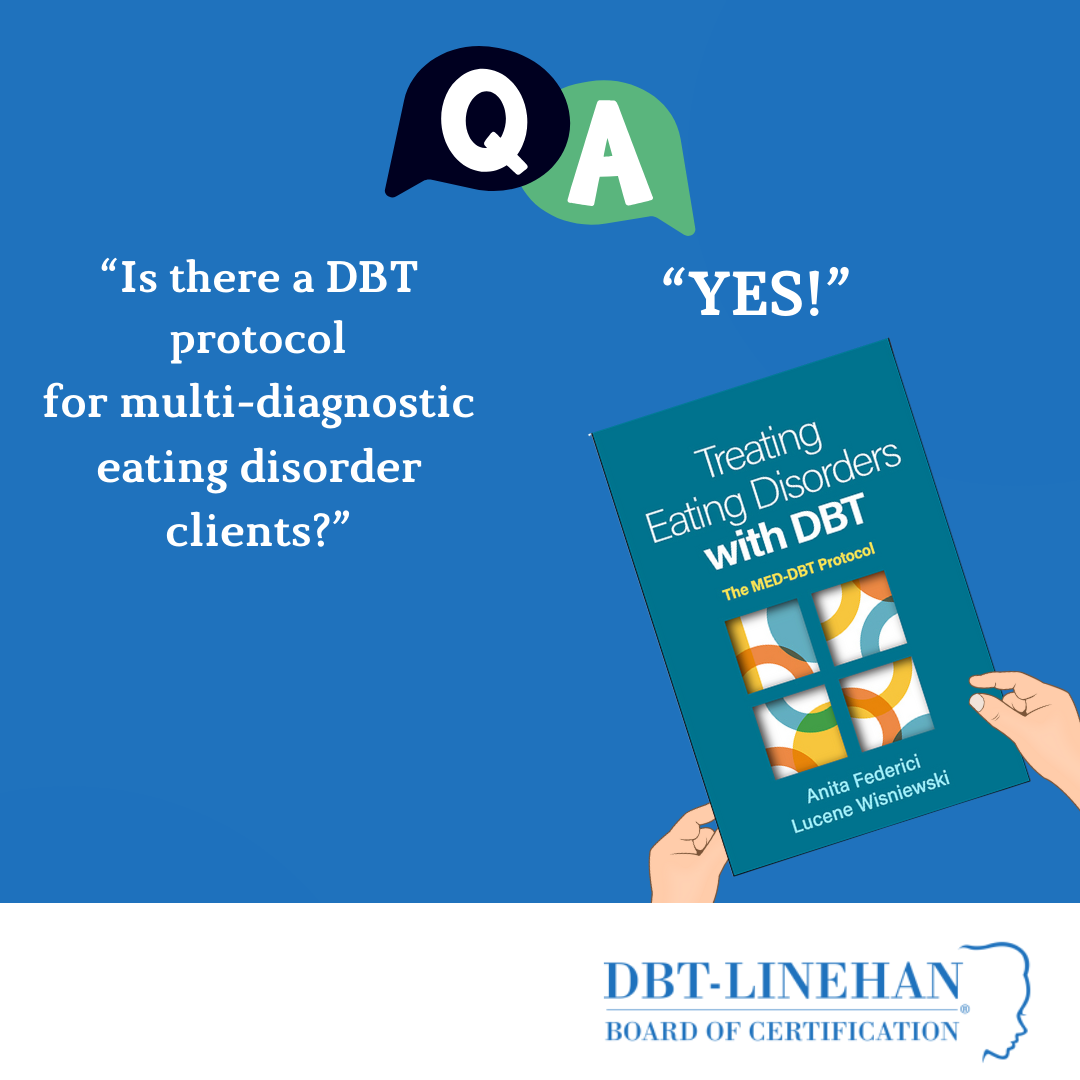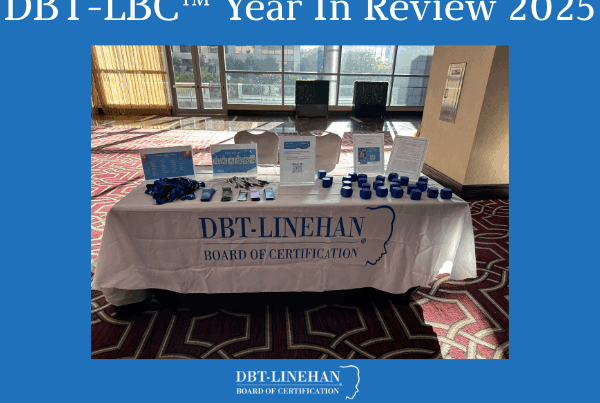Announcing the Release of:
Treating Eating Disorders with DBT: The MED DBT Protocol
Did you know that there is now a textbook for treating multi-diagnostic eating disorder clients? Treating Eating Disorders with DBT: The MED DBT Protocol (Federici & Wisniewski) is now available for preorder through Guilford Press.
We spoke with Anita Federici, Ph.D., CPsych, FAED, who shared why she and co-author Lucene Wisniewski, Ph.D., FAED decided to write the textbook. “For over two decades, we’ve worked closely with clients who fall through the cracks of traditional eating disorder (ED) care: those with nuanced and multi-diagnostic presentations often characterized by pervasive emotion dysregulation, suicidal and self-injurious behaviors, trauma histories, and substantive sensory difficulties. For these clients, standard ED or DBT approaches, alone, often aren’t enough.”
Dr. Federici continued sharing the intention behind this project. “MED DBT (Multi-diagnostic Eating Disorder DBT) emerged out of the recognition that many individuals need a more integrated, stage-based approach one that retains the structure and theoretical depth of standard DBT while attending directly to the physiological, emotional, and behavioral realities of eating disorders.”
It was important to the authors to directly address DBT clinicians who may feel under-equipped, or even intimidated, when working with eating disorders. “If as a DBT clinician, you’ve wondered how to manage meal-related exposures, support refeeding, weigh clients, or navigate body distress and weight stabilization in the context of other treatment-interfering or life-threatening behaviors, this book is for you. It is deeply practical, steeped in case examples, and designed to support clinicians in showing up skillfully and compassionately in the face of high-risk, emotionally intense presentations.
The book offers a full adaptation of DBT for eating disorders, including:
- Neurobiologically informed conceptualization of Eds
- Integration of food, fluid, and weight targets
- Application of chain and missing link analysis to ED-specific behaviors
- Strategies for managing therapy-interfering behaviors that arise in ED contexts
- Psychoeducation and protocols for supporting medical stability
- Attention to body image, trauma, sensory sensitivity, and neurodiversity
Finally, Dr. Federici spoke to the co-author’s collaboration as a driving force of its own. “This project was fueled by a truly synergistic partnership. Writing this book was not only a professional milestone, but a joyful, intellectually generative process. Lucene and I wrote with a shared purpose: to expand the reach of DBT and offer a model that reflects the realities of our clients’ lives.”
DBT-LBC™ wants to congratulate Drs. Federici and Wisniewski for their dedication to both the community of multi-diagnostic eating disorder clients and the community of DBT therapists who treat them.





